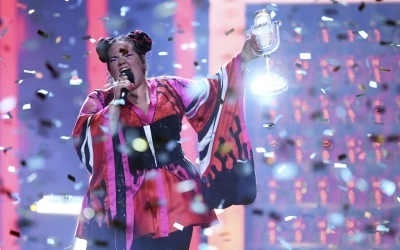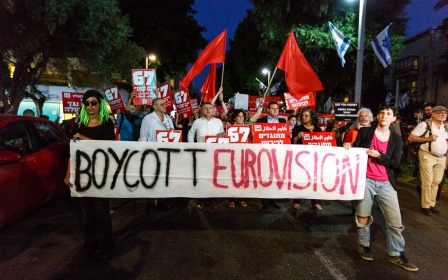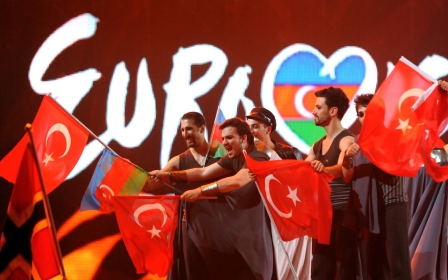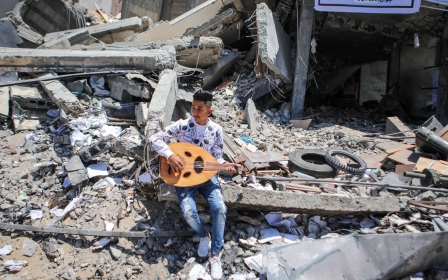Iceland could face penalty for pro-Palestine protest at Eurovision
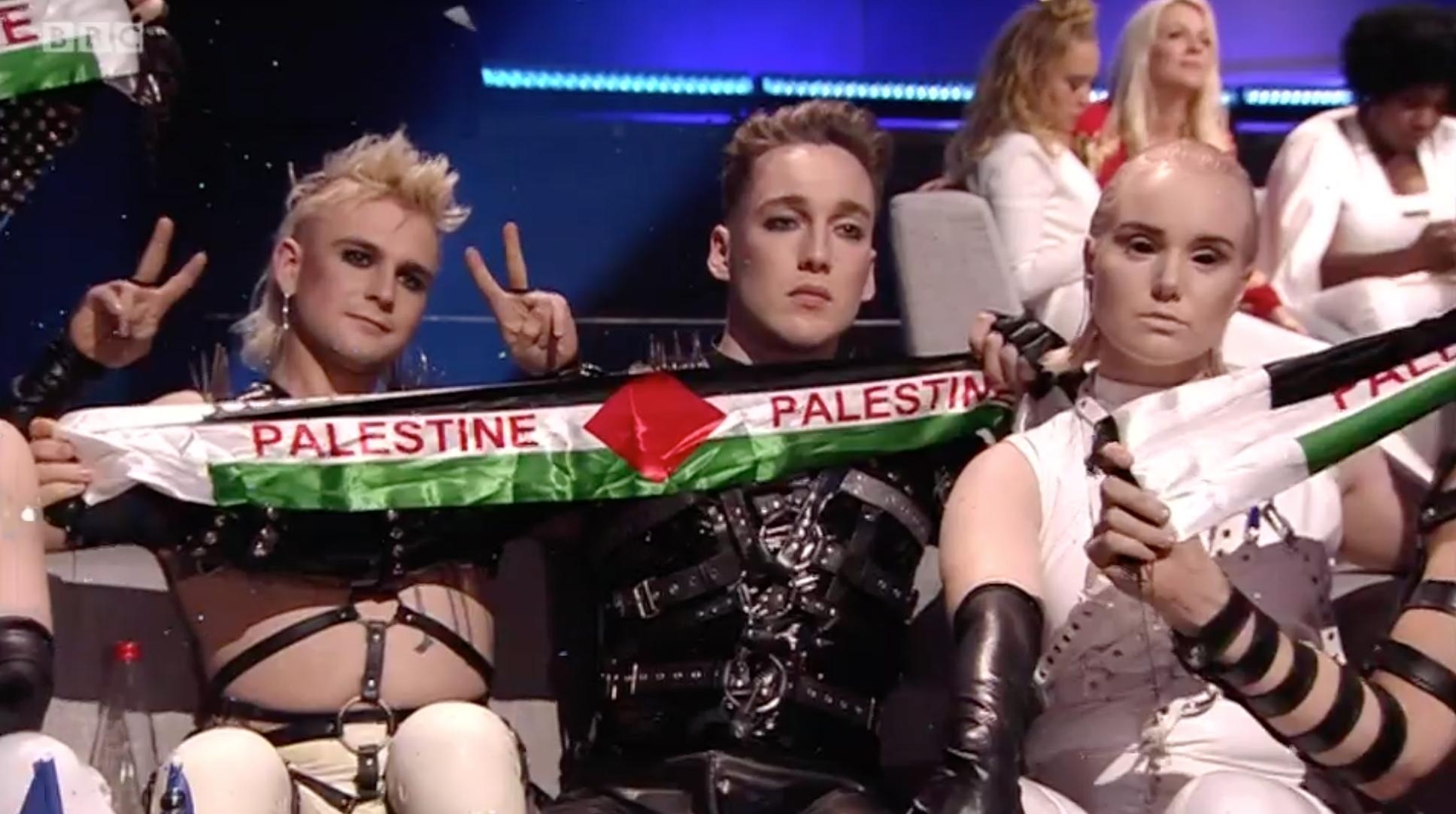
Iceland could face a penalty for unfurling a pro-Palestine banner at the Eurovision contest in Tel Aviv on Saturday night, organisers have said.
Iceland's 2019 entry to Eurovision, punk band Hatari, held up a banner with the word "Palestine" and Palestinian flag colours while their vote was announced.
During Hatari's protest, crowds could be heard booing the band before cameras cut back to hosts Bar Refaeli and Ezra Tel.
Footage posted on Twitter by the band also showed security officials attempting to take the banners from Hatari
New MEE newsletter: Jerusalem Dispatch
Sign up to get the latest insights and analysis on Israel-Palestine, alongside Turkey Unpacked and other MEE newsletters
Security guards can be heard asking Hatari to hand over the "the flag of Palestine" moments after their protest.
Eurovision has said that "consequences" for Hatari's actions will be discussed by the contest's executive board.
The Eurovision song contest is a non-political event and this directly contradicts the contest rule
- Eurovision
"The banners were quickly removed and the consequences of this action will be discussed by the reference group after the contest," Eurovision said in a statement.
"The Eurovision song contest is a non-political event and this directly contradicts the contest rule."
In the run up to the song contest, pro-Palestine activists urged artists to boycott the event as a show of solidarity to the Palestinian people.
Eurovision 2019: Why is Israel hosting the song contest?
+ Show - HideThe name of the singing contest suggests it’s a European affair, so why is Israel, a country in the Middle East, able to participate and why is it hosting this year’s contest?
Eligibility for Eurovision is not based on geography but membership of the European Broadcasting Union (EBU), which organises the event, and the Israeli Public Broadcasting Corporation is a member.
Technically, this means that Arab countries including Egypt, Jordan, Lebanon, Syria, Morocco and Tunisia are also eligible to participate.
In fact, Morocco took part in 1980 after Israel withdrew because the date of the contest overlapped with the Jewish holiday of Passover.
Israel first entered Eurovision in 1973 and has won the competition four times, including last year when Netta Barzilai won in Portugal. It previously hosted the event in 1979 and 1999, both times in Jerusalem.
Madonna referenced the calls for the boycotts. The backing dancers during her performance displayed Israeli and Palestinian flags on their backs.
“This element of the performance was not part of the rehearsals which had been cleared,” said competition organisers. “The Eurovision Song Contest is a non-political event and Madonna had been made aware of this.”
Thousands of tickets to the contest's live shows remained unsold before the event took place.
'Boycott Eurovision'
The calls for boycotting Eurovision intensified after Israel's recent bombardment of the Gaza Strip and shooting of Palestinian protesters calling for an end to the blockade of the coastal strip.
Peaceful protests were also held during the Eurovision semi-finals where protesters held up "Boycott Eurovision" and "Free Palestine" signs.
Israel gained hosting rights for the Eurovision song contest after Israeli singer Netta Barzilia won the competition in 2018. Netherlands' entry Duncan Laurence won Saturday's contest with his song Arcade.
Eligibility to participate in the contest is determined not by geography but by membership in the European Broadcasting Union (EBU), which organises the event. The Israel Broadcasting Authority is a member of the EBU.
Egypt, Jordan, Lebanon, Syria, Morocco and Tunisia are also eligible to take part in Eurovision. But Arab countries are deterred from competing to avoid accusations of normalising relations with Israel.
Lebanon was set to perform in the Eurovision Song Contest 2005 with a song performed by Aline Lahoud, but ended up pulling out because of the country's laws regarding the broadcast of Israeli content.
Morocco took part in 1980 only when Israel withdrew because the date of the contest overlapped with the Jewish Passover holiday. It was the first Arabic entry in the competition, with 22-year old Samira Bensaid singing Bitaqat Hub, a song for peace.
The Moroccan entry picked up only seven points, all from Italy, and finished in 18th place, ahead of last-placed Finland.
Middle East Eye delivers independent and unrivalled coverage and analysis of the Middle East, North Africa and beyond. To learn more about republishing this content and the associated fees, please fill out this form. More about MEE can be found here.


